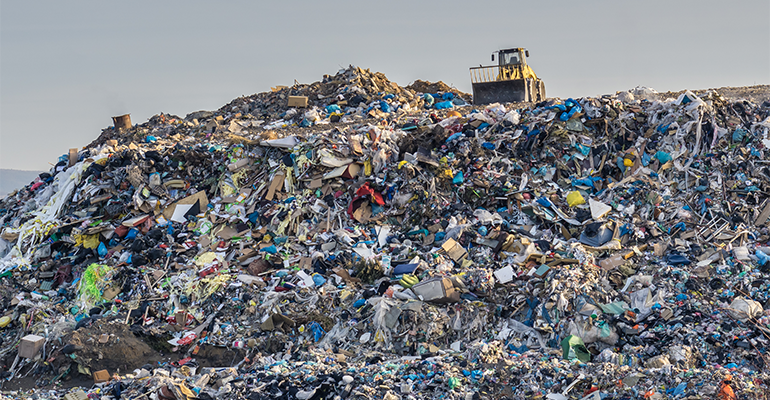News
EU Parliament passes stricter packaging rules
20 Jan 2025The European Parliament voted to approve updates to the packaging and packaging waste regulation, including enforceable re-use targets, limits on certain single-use packaging types, and restrictions on the use of PFAS “forever chemicals”.

Members of Parliament voted to pass through the regulation on packaging and packaging waste in December, amending Regulation (EU) 2019/1020 and Directive (EU) 2019/904, repealing Directive 94/62/EC. The vote represents the final step in the legislative procedure, signalling that Europe is putting its legal advocacy behind switching to less packaging and waste in the food and beverage sector. Voted on 16th December 2024, the EU will apply the regulation 18 months after it is enacted in the Journal.
The European Council stated that the approval of the packaging regulation will significantly reduce the generation of packaging waste produced. Covering the entire lifecycle of food and beverage packaging, the new European Union (EU) rules will set enforceable re-use targets and limit certain single-use packaging types.
What do the new rules mean for industry?
The packaging and packaging waste regulation brings in 2030 and 2040 targets for a minimum percentage of recycled content, including up to 65% for single-use plastic bottles, by 2040.
The regulation also stipulates that operators will need to minimise packaging weight and volume and avoid unnecessary packaging. Additionally, it states they need to minimise substances of concern in packaging, including restricting the production of food contact packaging that contains per- and polyfluorinated alkyl substances (PFAS) if they exceed certain thresholds.
Transparency will play a prominent role, with the regulation outlining that labelling, marking and information requirements detailing material composition or recycled content are key. It aims to help consumers make informed decisions over their packaging choices and sort through their food and drink packaging.
New rules will come into force on single-use plastic packaging. It adds specific rules on fruit and vegetables, specifying that pre-packed fruit and vegetables less than 1.5 kg apply. Food and drink consumed in hotels, bars, and restaurants also fall under the law, relating to individual portions of condiments, sauces, milk creamer, and sugar. The single-use plastic requirement applies to very lightweight plastic bags offered at markets for bulk groceries.
There are also re-use targets and re-fill obligations attached to the packaging and packaging waste regulation. It has set new binding re-use targets for 2030 and indicative targets for 2040. Packaging targets vary depending on the operators. For example, there are 40% binding targets for transport and sales packaging, along with 10% for grouped packaging.
The food service sector within the food and drink industry is also undergoing changes. Take-away businesses will have to offer consumers the option to bring in their own containers to fill with ready-prepared food and cold or hot beverages without any additional charges.
Waste surpasses recyclability
Due to more awareness and a greater push for recyclability in the EU, recycling rates have increased. While recycling rates have gone up, waste has too, but far faster. In 2022, the EU produced nearly 186.5 kilograms of waste packaging per person, with 36 coming from plastic packaging. Daily, this means that each EU consumer produces half a kilogram of packaging waste.
The United Nations (UN) Sustainable Development Goals (SDGs) 2030 goals are almost five years away, with goal 12: responsible consumption and production pushing for more action. The goal specifies using packaging with a low environmental impact, compostability, recyclability and lowering emissions to create environmentally friendly business practices.
Related news

Value is a top priority for today’s F&B consumers
3 Apr 2025
Research from global consultancy Hartman Group suggests there are six core values that brands must tap into to connect with consumers’ needs.
Read more
Lidl GB debuts on TikTok Shop with high-protein foods promotion
2 Apr 2025
Lidl GB has become the first UK grocery retailer to sell on TikTok Shop, with its limited edition run of high-protein bundles selling out in under 20 minutes.
Read more
Clean-label cereals prompt fortification debate
28 Mar 2025
Marks & Spencer has caused a stir with the launch of a range of breakfast cereals in the UK containing minimal ingredients.
Read more
Changing global food retail environments linked to rise in obesity
27 Mar 2025
Changes in retail food environments – particularly the growing prominence of large chains – are positively correlated with rising obesity prevalence, a study suggests.
Read more
Future F&B flavours favour exploration and explosive taste profiles
25 Mar 2025
Exploration and experimentation will define the future of flavour, according to Mintel, as consumers seek out taste profiles and textures that offer an adventurous eating experience.
Read more
Global consumers enjoy food less and perceive it as less healthy
20 Mar 2025
Enjoyment of food and its perceived healthiness is dwindling among most global populations, according to findings from Gallup and Ando Foundation/Nissin Food Products.
Read more
Plans to abandon mandatory Nutri-Score labelling ‘would be a step back’
17 Mar 2025
Critics have slammed reports that mandatory Nutri-Score labelling is to be abandoned as “a step back” that puts citizens’ health at risk.
Read more
Food companies urged to bring ‘joy’ and urgency to healthy food mission
14 Mar 2025
For too long, businesses have treated health and sustainability as separate agendas – but there is growing evidence to show diets that benefit human health can also enhance that of the planet, say experts.
Read more
HFSS product placement regulation hits unhealthy food displays
6 Mar 2025
The proportion of space used to display HFSS foods in UK supermarkets fell following the introduction of regulations restricting the location of product promotions, research shows.
Read more
Smaller snack sizes represent big growth opportunity for PepsiCo
5 Mar 2025
Brands are responding to consumer demand for healthier products by developing classic snacks in smaller portion sizes, meaning fewer calories, lower sodium, and lower fat.
Read more